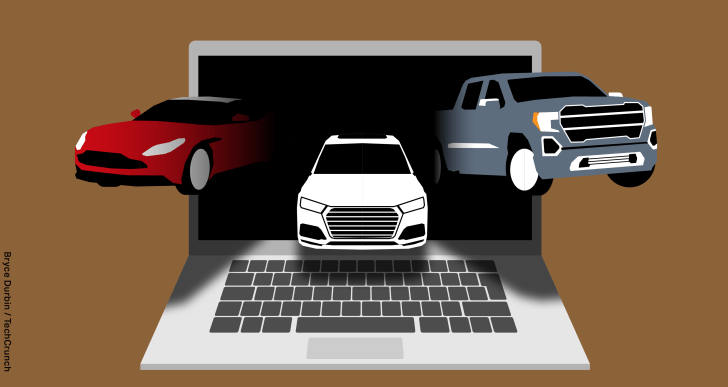Car shoppers now have several new options to avoid long-term debt and commitments. Automakers and startups alike are increasingly offering services that give buyers new opportunities and greater flexibility around owning and using vehicles.
Cars-as-a-Service
In the first part of this feature, we explored the different startups attempting to change car buying. But not everyone wants to buy a car. After all, a vehicle traditionally loses its value at a dramatic rate.
Some startups are attempting to reinvent car ownership rather than car buying.
Don’t buy, lease
My favorite car blog Jalopnik said it best: “Cars Sales Could Be Heading Straight Into the Toilet.” Citing a Bloomberg report, the site explains automakers may have had the worst first half for new-vehicle retail sales since 2013. Car sales are tanking, but people still need cars.
Companies like Fair are offering new types of leases combining a traditional auto financing option with modern conveniences. Even car makers are looking at different ways to move vehicles from dealer lots.
Fair was founded in 2016 by an all-star team made up of automotive, retail and banking executives including Scott Painter, former founder and CEO of TrueCar.
Fair has raised $1.5b from SoftBank, Silicon Valley Bank, Upfront Ventures, and more to create a so-called “car-as-a-service” platform. Like other automotive marketplaces, much of this capital goes towards purchasing vehicles to offer on the platform.
“In simple terms,” co-founder and then CEO Scott Painter, told TechCrunch following its recent raise, “for every dollar in equity we unlock $10 in debt, and we borrow that cash to buy cars.”
Fair works much like a traditional lease with more options. Users can drive the vehicles as long as they’re paying for them and can switch to a different one whenever. This is different from a traditional lease where the buyer is often locked into the vehicle for two to four years. The model makes Fair an excellent option for Uber and Lyft drivers, and in the last year, Uber sold fair its $400 million leasing business to accelerate this offering.
Fair is set out to reduce the barriers needed to get a person from a shopper to a buyer. It only takes two pieces of documentation to lease a car. Fair asks for just a driver’s license, and either a credit card or bank account details. These two pieces of information allow the platform to determine eligibility.
This focus on making car buying as easy as possible is echoed throughout the new crop of automotive marketplaces. Car buying has long been a hassle, and to get more people to buy cars, services are finding ways to make it as easy as possible, including online shopping and delivery services. Automakers have taken notice, too, and have started offering vehicles through subscription services.
Don’t lease, subscribe
Car subscriptions give buyers even more flexibility than leases though they often come at a steep price. Automakers such as BMW, Porsche, Volvo, Mercedes-Benz, and other luxury makers now offer buyers access to a fleet of vehicles. Instead of picking out one car, subscribers have access to several and can switch with little notice.
For instance, with the Mercedes-Benz Collection, subscribers pay a $495 application fee and pick from several tiers of service. For $1,595 a month subscribers have access to the C43 AMG, the E400 wagon, and the GLE350 SUV. Double that price to $2,995 to get access to a C63 S sedan, a G550 SUV or an SL550 roadster.
Often these subscriptions services are centered around a smartphone app that allows users to select different vehicles and arrange the swap. Each service is slightly different, but the end goal is the same: to get more people into new cars quicker.
Volvo was one of the first automakers to offer a service, which is slightly different from competing services. Launched in 2017, Care by Volvo is only available for the XC40 crossover and costs between $600 and $700 a month depending on the selected trim.

Image via Getty Images / Michael H
With Care, subscribers gain extra protection as excess wear and use are included in the pricing. Volvo will reportedly forgive some damage done to the vehicle. That said, the service only allows users to swap vehicles car every 12 months.
Ford’s credit division acquired a startup called Canvas in 2016 and has since expanded its operations outside of its original market of the Bay Area. Canvas is currently in San Francisco Bay Area, Los Angeles, Dallas/Fort Worth and coming to Boston soon.
Like other subscription services, Canvas offers an alternative to leasing or buying. Customers can get vehicles on a month-to-month basis, with no long term commitments, with a single monthly payment that covers the cost of vehicle maintenance, warranty, roadside assistance, and car insurance, as well as the price of the car itself.
The fee averages out to around $400 to $500 per month, which isn’t that far off from a more traditional lease and insurance anyway. Though Canvas is in part owned by Ford, there’s a variety of vehicles available through the service.
All aspects of mobility are undergoing a dramatic shift. It’s hitting everything from manufacturing to consumer expectations to ownership. The consumer still needs to get around, and for a large swath of consumers, vehicles will remain a primary mode of transportation for the foreseeable future.
